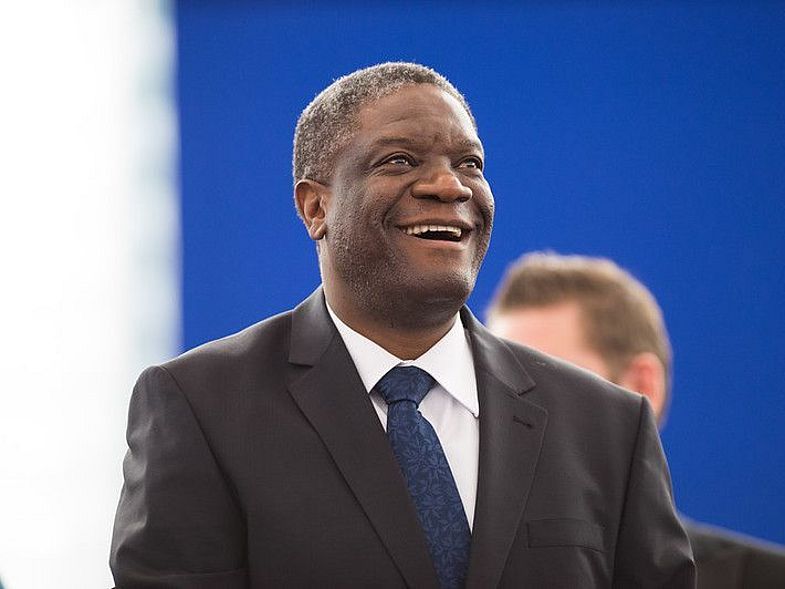In the event of a war, women and children are often at the receiving end of the most brutality and used as pawns of conflict.
Each army asserts its dominance through how violently they can hurt the other’s women and children. There are many stories of young girls, their mothers, and grandmothers being captured, tortured, and raped by rebel groups in Africa, yet reports of how these women are treated back to health are few. Governments in Africa do not prioritize the safety and health of women, especially against Gender-Based Violence, so when doctors like Denis Mukwege dedicate their lives to such a trauma-filled and dangerous cause with selflessness, they are to be commended.
Mukwege’s connection to obstetrics and gynecology began when he was saved at birth by a Swedish missionary and midwife. Born in Bukavu in the Democratic Republic of Congo in 1955, there was no specialized healthcare, especially for pregnant women. At birth, a local woman assisted his mother during labor and incorrectly cut his umbilical cord resulting in him developing septicemia, which almost claimed his life.
In his childhood, medicine had a pervasive presence as he exhibited a keen interest in the field. His father, a Pentecostal minister, often prayed for the sick, which motivated Mukwege to study medicine formally. “When my father was praying for a child, I saw how weak he was. He told me, ‘I am not a doctor.’ So, my impression was, if my father can’t do it, I will do it. So, we can be a team.” he said in an interview with The Guardian. Images he witnessed of women experiencing complications at childbirth were also a determining factor in his career path. He graduated with a medical degree in 1983 from the University of Burundi and worked in Lemera Hospital near his hometown as a pediatrician.
Mukwege made a career pivot to gynecology and obstetrics prompted by seeing female patients suffering from genital lesions and obstetric fistulas due to a lack of care post-labor. Subsequently, he obtained his masters from the University of Angers in France. Finally, he completed his medical residency in 1989, returning to Lemera for what would be the most tumultuous and impactful start to his Ob/Gyn career.
During severe civil unrest, Mukwege’s hospital found itself embroiled. He and his staff treated patients who were involved or caught in the crossfire during the first and second Congo war and the Rwandan genocide in the mid-90s. Women would be gang-raped, shot, or stabbed in their vaginas. Mukwege had to flee the country due to rising violence. Upon his return a year later, he opened a new hospital in Panzi, a suburb in Bukavu, dedicated to treating the sexual violence many women endured during the unrest.
Mukwege’s efforts in ensuring women received specialized treatment for their injuries were met with pushback from the government. He’d receive death threats and even survived an assassination attempt in 2012. He fled the country once more yet returned just three months later after hearing that a group of women wrote to the then-president (Kabila) a letter demanding the return and safety of Mukwege. He received a hero’s welcome. Women lined the streets, expressing their utmost jubilation. “There were 30km of women on the roads,” he recounted. “They were there just to say, ‘We are here, and we want to support you. We want our doctor back, and we want to protect him.'”
Mukwege has received numerous awards for his work in obstetrics and gynecology. In 2008 he was awarded the United Nations Human Rights Prize and the Olof Palme Prize for outstanding achievement in promoting peace. The European Parliament awarded him the Sakharov Prize for Freedom of Thought in 2014, and in 2018 he was awarded one of the most prestigious honors in the world, the Nobel Peace Prize. He and Iraqi Yazidi human rights activist Nadia Murad were jointly awarded the Prize for “their efforts to end the use of sexual violence as a weapon of war and armed conflict.”
Denis Mukwege’s passion for obstetrics and gynecology distinguishes him from his peers. He has dedicated his life to creating an environment of healing for so many victims of sexual violence. His work has constantly put him in the firing line, yet he stood firmly in his beliefs and values. He indeed possesses the true meaning of what an African hero is.


